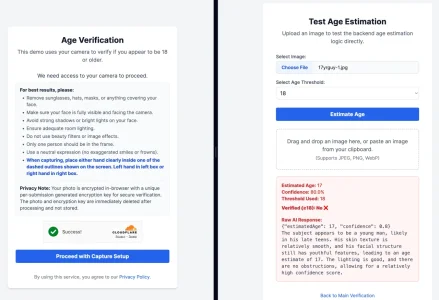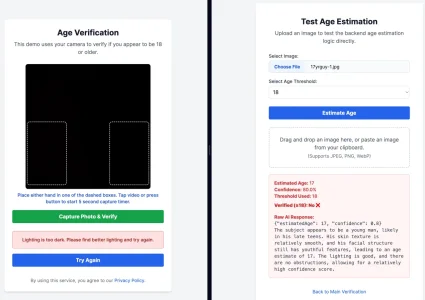eva2000
Well-known member
Yeah so easy to get around it though still not without costs in terms of $$$$ and time and effortIt all comes across, particularly regarding the blocking of access to pornography by children, as putting a heavy load on legit organisations which are trying to comply, with any illicit sites who don't really care probably being out of realistic reach of OFCOM.
The most they will be able to do with most non-compliant sites hosted outside of the UK is request ISPs to block them, which anyone who wants to will get around with a VPN.
Yeah interesting debate from all sides https://www.biometricupdate.com/202...uld-governments-pay-to-protect-kids-from-porn
Government projects mean public money, and the question of whether age assurance for porn is a valid use of tax dollars hangs over the deployment of government-led initiatives. The UK has joined Europe in launching a UK.gov wallet product that could facilitate age assurance through mDLs, causing consternation among industry voices that governments could crowd out private enterprise, putting a damper on a burgeoning industry.
Brandstätter quotes Julie Dawson, chief policy and regulatory officer at Yoti, who points out that “there are age assurance approaches which are ready today, operating at scale globally that are accepted by industry, platforms, and consumers already.”
Others are making the same point, and preparing for a shifting landscape. The Global Age Assurance Standards Summit featured a panel moderated by the Age Verification Providers Association (AVPA) on “The Future of Age Assurance in the Face of Competition from Government and Big Tech” – conjuring not just the specter of the Man, but also the looming shadow of the tech giants that have defined most online experiences in the 21st century.
“The EU’s white label app aims to accelerate the ability to use the EU Digital ID wallet for age verification, and addresses some of the concerns that the Architecture and Reference Framework cannot support truly anonymous, authenticated online age checks,” AVPA Executive Director Iain Corby told Biometric Update in an email.
“It is inevitable that states will issue digital ID in one form or another, but we argue in favour of consumer choice, with many users reluctant to use a government-issued key to access the Internet. We strongly support the principles of equality, portability, choice and interoperability required to deliver a vibrant, innovative and competitive public and private sector ecosystem for digital identities and age assurance.”
Various publics may have a hard time swallowing the idea that their tax dollars should pay to protect kids from websites that resist paying for online safety measures themselves. The bigger threat, perhaps, is Meta or Google seizing the age assurance mantle, further consolidating digital access among giants, and leaving independent providers behind.




